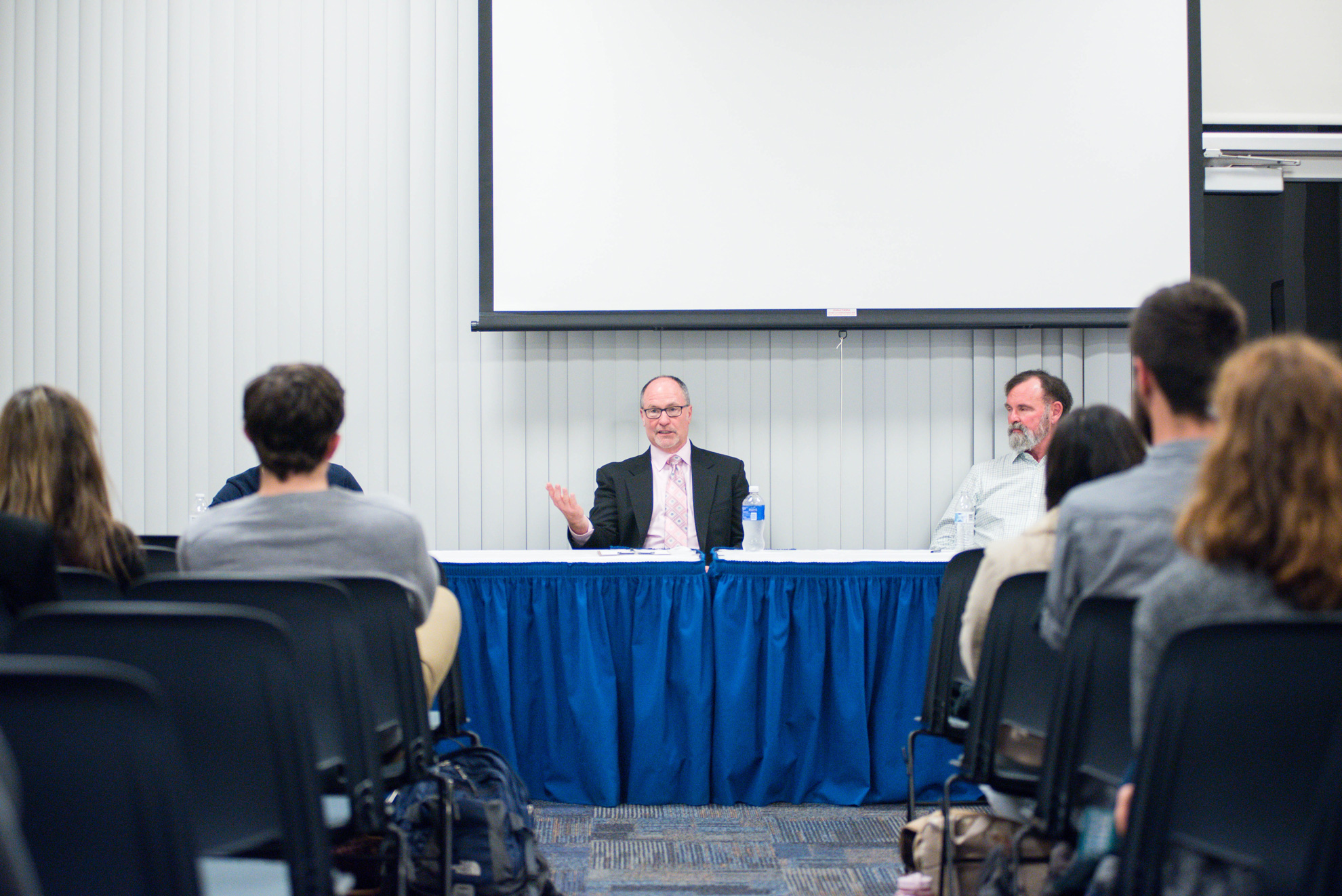
Akshaya Natarajan
A three-person panel discussed the issue of campaign finance reform and the outcomes of the Citizens United Supreme Court decision on Thurs., Jan. 21. Professor Eric Smith of the Department of Political Science, Santa Barbara City Council member Gregg Hart and Associated Students Voter Registration Director Jared Daniels debated the results of money in politics and how that affects the voices of citizens within the political system.
The event was put on by UCSB’s California Public Interest Research Group (CALPIRG) chapter in their efforts to educate the public about the effects of the Citizens United case on the current political climate. CALPIRG is a statewide organization dedicated to advocacy and grassroots organizing around public interest issues. The UCSB chapter of CALPIRG has focused on many issues that California college students face, such as high textbook prices and environmental justice.
The moderator and organizer of the debate, Eric Arias, asked the panelists open-ended questions about their opinions on the Citizens United case and how students could organize in response to it. A second year political science major and the Lobby Coordinator for UCSB’s CALPIRG chapter, Arias, talked about how he and other members felt that the Citizens United ruling was unfair, and tried to think of ways to mobilize against it.
“So we stumbled upon a resolution that 50 cities have passed,” Arias said, referring to a resolution to formally declare an official opposition to the Supreme Court decision in the Citizens United v. FEC case. “Power is really rooted in numbers, so we figured Santa Barbara needs to be the fifty-first.”
The discussion opened with a viewing of an informational video about the adverse effects of the Citizens United case. Afterwards, the panelists answered questions about the effects of the ruling.
City Councilmember Gregg Hart spoke on the role of money in politics from his experience in local government. A UCSB alumnus with many years of experience in the City Council, Hart discussed the pressure that he and other elected officials face in raising money, especially with regard to reelection.
“[Politicians] make decisions because of the political pressure to get reelected, to not let down your team,” Hart said. “And people with means know it’s important for them to spend money in politics to advance their values. People without money don’t have money, and don’t have the time or the resources to get involved in politics. And that is fundamentally a disparity that needs to be addressed.”
Councilmember Hart went on to discuss what he believes are the partisan effects of campaign financing. “The influence of money in the two parties is dramatically different,” Hart said. “The judges on the Supreme Court who passed Citizens United, who are consistently ruling in ways that protect corporate influence and disadvantage regular people, are the Republicans.”
Professor Smith went into detail about the nuances of money in politics, dispelling some myths. “People are getting into politics and are choosing where they want to stand,” Smith said, rather than the typical notion of politicians picking their stances based only on influence from special interests. “There’s no quid pro quo, but nevertheless there’s the lure of money out there. And more and more, politicians have been thinking more about money because campaigns have become so much more expensive.”
“But it’s not just about the money,” Smith said. He went on to discuss how in many cases, people that spend a lot more money on campaigns don’t end up winning.
Jared Daniels, the AS Voter Registration Director, discussed how he believes corporations have too much influence on politics. “When politicians are spending 50 percent of their time in office raising money, that’s 50 percent of their time they’re not spending in committees and serving the needs of their constituents,” Daniels said. “So yes, I absolutely think that money from special interests has too much of an effect in politics.”
All three panelists talked about the role students play in politics, especially in turning out to vote.
“Rather than being passively engaged in an election to the point where you’re easily swayed by a TV ad, voters should be more actively engaged,” Councilmember Hart said. He believes that the issue of citizen apathy in politics and government is more serious than the legal problem of the Citizens United case. “How do you engage people to give them a sense of hope and power?”
With regard to citizens organizing and making a change in politics, Professor Smith said that “to make activism more effective, [one] should target the places where it makes the most difference.” He said that students can make the biggest impact by mobilizing in swing states and swing districts.










